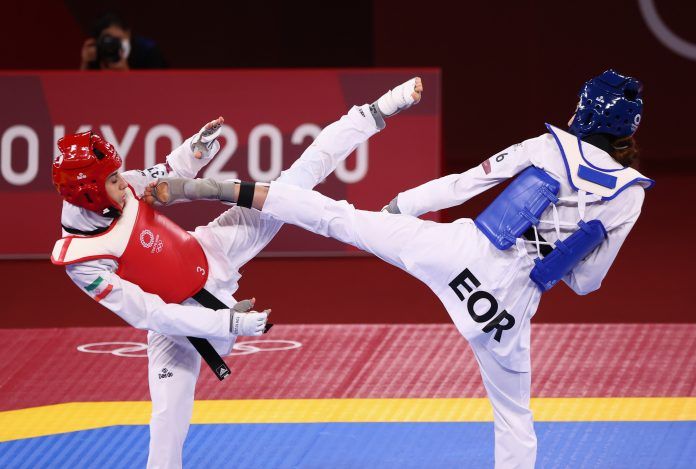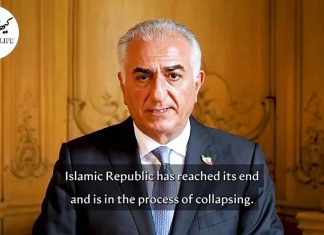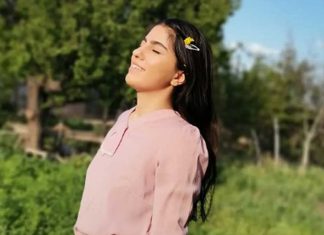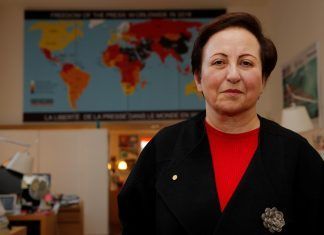
By Ahmad Rafat
The 2020 Summer Olympic Games, which were delayed by a year because of the coronavirus pandemic, finally kicked off officially in Tokyo on July 23.
According to some reports, 80 percent of the Japanese were against the Olympic Games being held in Tokyo. Many sponsors have reportedly withdrawn their support for the games.
Meanwhile, a string of scandals has hit the Tokyo Olympics organizers. In one of those scandals, the director of the opening ceremony, Kentaro Kobayashi, a famous Japanese comedian, was dismissed a day before the official start of the games after he was shown to have made inappropriate remarks.
There are 206 nations, territories, and principalities and 10,305 individual athletes competing at the Tokyo Olympics.
The Islamic Republic’s quota for the Tokyo Olympics was 69 athletes, but it only sent 66 to the games.
Iranian world karate champion Bahman Asgari will miss the games after being given a one-year ban for doping.
Parisa Jahanfekrian, the first-ever Iranian woman weightlifter, is reportedly not taking part in the competitions because of health issues. Ms. Jahanfekrian has said that other reasons prevented her from going to Tokyo but gave no details.
Iranian athletes in the Tokyo summer games will compete in various sports, including athletics, shooting, freestyle wrestling, Greco-Roman wrestling, cycling, archery, taekwondo, fencing, karate, boxing, table tennis, sailing, weightlifting, volleyball, and basketball.
However, the actual number of Iranian athletes competing in the Tokyo Olympics is more than the 66 representing the Islamic Republic.
There are also five Iranian athletes among the 29 members of the International Olympic Committee (OIC) Refugee Olympic Team, competing under the Olympic flag — the iconic five interlocking rings against a white background.
They include Kimia Alizadeh, the first Iranian woman athlete to win a medal in the Olympic Games.
Ms. Alizadeh won a bronze medal in the taekwondo 57 kg weight class at the 2016 Summer Olympics in Rio de Janeiro.
Dina Pouryounes Langeroudi is another Iranian woman taekwondo athlete competing as a member of the Refugee Olympic Team.
Others include Javad Mahjoub, an Iranian judoka who competed in the 2012 London and 2016 Rio Olympics.
During the 2012 London Summer Olympics, Mr. Mahjoub was ordered by Islamic Republic officials to withdraw from the competition after they realized he might face an Israeli opponent.
Hamoon Derafshipour, an Iranian karateka, is also a member of the Refugee Olympic Team. It is the first time that karate is featured at an Olympic Games.
Mr. Derafshipour has won several medals at the international competition, including a bronze in the Men’s Individual 67-kilogram Kumite at the 2018 Senior World Karate Championship at Madrid, Spain.
Saeid Fazloula, a canoe sprinter, is the fifth Iranian athlete competing in the Refugee Olympic Team.
In her first match on July 25, Kimia Alizadeh will face Nahid Kiani, representing the Islamic Republic — two Iranians competing against each other under different flags.
Alizadeh left Iran two years ago and applied for asylum in Germany. In January 2020, Alizadeh posted a message on her Instagram channel criticizing the Islamic Republic for exploiting her for their political gain.
“I am one of the millions of oppressed women in Iran whom they have used for years,” Alizadeh said in her Instagram post. “They took me anywhere they wished. I wore whatever they told me to wear. I said everything they told me to say.”
“They exploited me,” she added. “They attributed my medals to the mandatory hijab and took credit for my achievements. I was not important to them. None of us matter to them. We are just tools. They only care about the medals which they exploit for their political aims.”
Iranian world champion judoka, Saeed Mollaei, will compete in the Olympic Games under the Mongolian flag.
Mr. Mollaei, who left Iran for Germany in November 2019, said that “as an athlete and free person,” he will “exercise control over his life.”
During the Paris Grand Slam in February 2019, Mollaei, who was competing in the men’s 81-kilogram division, was reportedly forced by the Iranian authorities to throw a match against Kazakhstan’s Ruslan Mussayev to avoid facing his Israeli opponent Sagi Muki in the next round.
Footage of the event showed Mollaei in tears as he left the mat after losing to Mr. Mussayev.
Mollaei won a silver medal at the two-day International Judo Federation (IJF) Grand Slam in Tel Aviv in February of this year.
[aesop_image img=”https://kayhanlife.com/wp-content/uploads/2019/09/2019-08-28T072031Z_657811779_RC132DEB4980_RTRMADP_3_JUDO-WORLD.jpg” panorama=”off” credit=”FILE PHOTO: Saeid Mollaei. REUTERS/Kim Kyung-Hoon” align=”center” lightbox=”on” captionsrc=”custom” captionposition=”left” revealfx=”off” overlay_revealfx=”off”]
INTERVIEW – Iran’s Mollaei Eyes Tokyo Olympic Glory, Uncertain of Iran Return
Raheleh Asemani, an Iranian woman taekwondo athlete, who competed under the Belgian flag in the 2016 Rio Games, did not make the team for the Tokyo Olympics.
Three Iranians will take part in the Tokyo Games under the flag of the Republic of Azerbaijan.
They include the star of the Azerbaijan national taekwondo team, Milad Beigi, who won a bronze medal in the 2016 Rio games; swimmer Maryam Sheikhalizadeh and Reza Mehmandoost, the former head coach of the Iranian national taekwondo team, who is coaching the Azerbaijan national taekwondo team in the current games.
Some 59 Iranians in 13 sporting fields have defected to 21 countries in the past five years.
They include several international referees and coaches, including Mr. Mehmandoost, Nadereh Aghaei, the former head coach of the Iranian women’s national karate team, and Sara Khosravi, the former head coach of the Iranian women’s national gymnastics team.
Following the death of Navid Afkari, a 27-year-old Iranian champion wrestler who was executed on Sept. 12 in Shiraz, a group of athletes formed the United for Navid Campaign.
Afkari was charged with murdering a security guard at the Shiraz Water and Wastewater Management Company during the nationwide protests of 2018 and was hanged hurriedly and secretly without prior notice to him, his family, or his lawyer.
INSIDE THE STORY – Iran’s Zarif Cancels European Trip After Global Condemnation of Afkari Execution
Iranian Jiu-Jitsu Champion Rajabi Dedicates Win to Executed Wrestler Afkari
Iran Had World’s Second Worst Human Rights Record in 2020, UN Watch Says
Before the Tokyo Games, the United for Navid Campaign sent a letter to the IOC, urging it to investigate widespread discrimination and abuse against athletes in the Islamic Republic.
The letter cites 20 gross discrimination, harassment, and abuse cases against athletes in Iran.
These athletes believe that the Islamic Republic has repeatedly violated the IOC charter.
The IOC spokesperson told Kayhan Life that the committee is looking into these allegations, and if proven that the Islamic Republic had violated the OIC charter, “we will take the necessary measures.”





